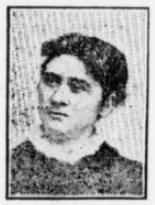

Conscious morality cannot exist in any being except so far as it can look behind, before, and around; and can remember, compare, and reason about right and wrong so as to choose for itself, and for those it can influence, a given course; and the final touch which distinguishes man as a moral being is the power to gather this feeling and reasoning up into an ideal picture of a whole, which he sets before him and seeks to make living and real.
Zona Vallance
Zona Vallance was a founding figure of the Union of Ethical Societies (now Humanists UK) who, as its inaugural secretary, held the role of today’s Chief Executive. She was also the first secretary of the Moral Instruction League, and a regular contributor to The Ethical World (later Ethics), writing on issues concerning women and the battle for suffrage. Vallance’s humanism and feminism were deeply intertwined, her activism in both areas cut short by her death at the age of just 44.
Zona Vallance was born on 6 February 1860 in Stratford, London, the eldest child of Lucy (née Skipper) and Thomas James Vallance, a doctor and surgeon. In 1890, Vallance was a founding member of the East London Ethical Society, established to foster ‘the development of good character and the promotion of right conduct on a purely human basis’. Frederick James Gould, a co-founder, described Vallance as a ‘devoted and enthusiastic’ worker for the humanist movement, within which her beliefs in human rights and social reform were fostered and enlarged.
From its conception in 1895 (and officially with its formal establishment the following year) Zona Vallance was the inaugural honorary secretary of the Union of Ethical Societies. From 1897-1900, she was also honorary secretary of the Moral Instruction League, which advocated for non-theological moral instruction in schools. Vallance was an organiser in the Union’s Moral Instruction Circle, which focused its efforts on convincing ‘teachers and parents that moral instruction could be interestingly and effectively given’. In 1899, Vallance and a committee which included James Ramsay MacDonald, petitioned the London School Board, challenging the use of the Bible in schools. Their petition argued that that ‘the supposition that parents are pleased with the present Bible teaching is quite unfounded in fact’.
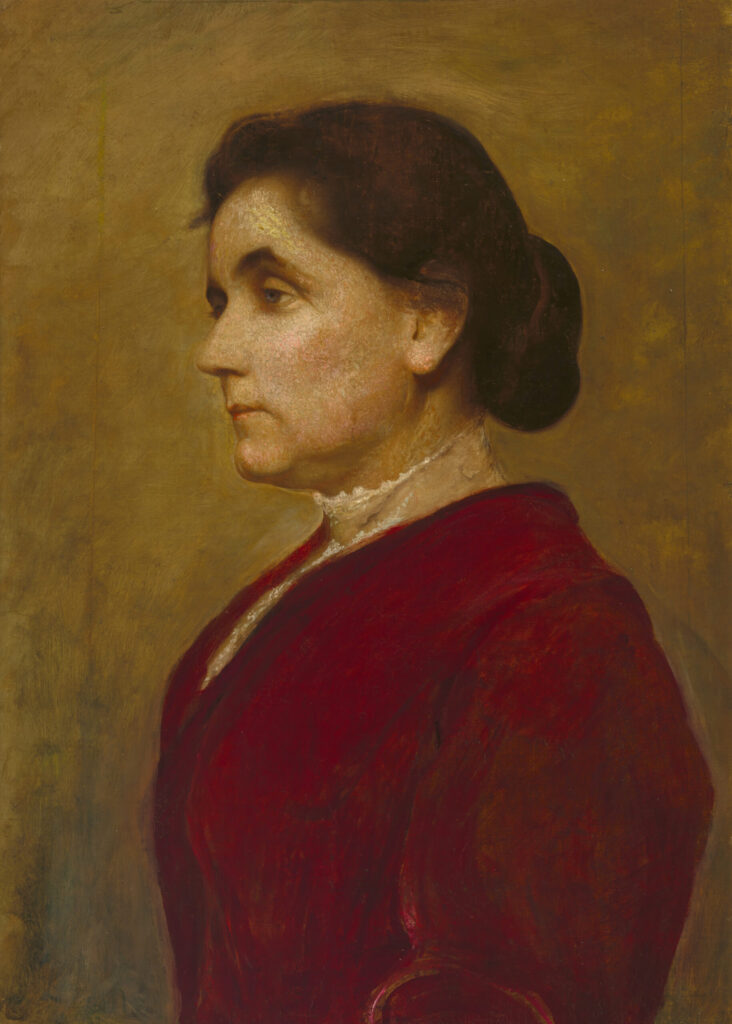
In 1901, Vallance was assigned a one-year lectureship by the Ethical Lecturers’ Fund Committee, which consisted of other prominent members of the movement, including Leslie Stephen, J. H. Muirhead, and Stanton Coit. The following year, Vallance undertook a lecture tour of the United States, speaking at various societies and clubs on the Ethical movement and the role of women. Among these was Hull House, a settlement co-founded in 1899 by social reformers Jane Addams and Ellen Gates Starr. Here, she gave a talk entitled ‘The Economic Dependence of Man upon Women’, in which she argued that women must agitate for political rights, and that they deserved to be compensated for their services in the household. At the conference of the New York Society for Ethical Culture, Vallance lectured on ‘Women and the Ethical Movement’, stating that ‘all self-respecting women’ should ‘be found in the vanguard of self-assertion today’ and lead the way in ethical reforms. She spoke in praise of women’s trade unions as an example of the way ‘the woman of ethical culture persuasion should bend her energies to the enlightenment… and industrial emancipation of women in the busier walks of life’.
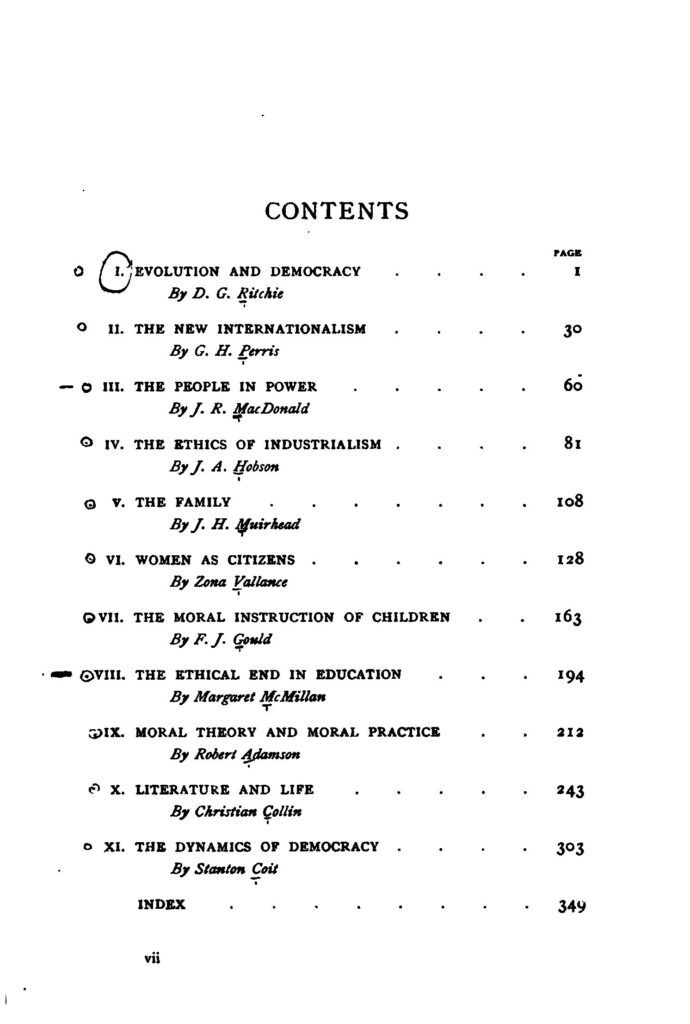
In addition to lecturing, Vallance wrote regularly on feminist, socialist, and humanist issues. As Gustav Spiller recalled in his history of the movement:
She contributed frequently to the columns of The Ethical World, wrote leaflets and pamphlets… and stressed more especially justice to women in the social and political sphere.
Among published pieces by Zona Vallance were ‘Reason in the Ethical Movement’, ‘The Ethical Movement and Women’, ‘Women as Citizens’, and ‘The Ethical Movement and the After Life’. For Zona Vallance, the rights and freedoms of women were of central concern to arguments of ethics, and of economics. In ‘The Ethical Movement and Women’, she made this clear:
No man can be a voter, a husband, or a father without being compelled to face detailed questions as to the treatment of claims advanced by wife or daughters or sister women; or, on the other hand, without considering how he ought to estimate many women’s passive acceptance of ancient traditions about the limits of women’s duties and rights. Also, no earnest woman can live in the modern world without taking some attitude, either for or against, what has been called the movement for the emancipation of women. It is a subject on which indifference is impossible to a genuine devotee of the right life.
The discoveries and promises of science were a direct challenge to the hierarchies and restrictions imposed by existing theological systems, and Vallance’s argument was that as science subverted these long held beliefs, society’s conception of women must shift accordingly.
It was ambition, curiosity, and disobedience which was Eve’s sin. But modern science cries aloud to the mother-sex for full knowledge, a desire to rise, a thoroughly efficient body, and an independent intellect and conscience… Early world-philosophy turned always back to the Father, assuming him as exclusive and supernatural source of ethical law and ethical progress. It positively regarded the male as Creator and Lord not of the family alone, but of all nature.
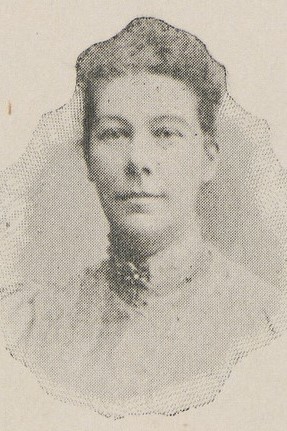
Vallance brought a fiercely intelligent and unflinchingly forthright voice to the philosophy and action of the ethical societies, playing a vital role in the application of humanist principles to active social reform. She died in Kensington on 15 December 1904, at the age of 44. Of her, fellow suffragist, socialist, and ethical society member Dora Montefiore wrote
The cause of Humanity lost… one of its most devoted workers in the person of Zona Vallance, writer and lecturer, who, after a short but painful illness, is now at rest. A woman fellow-worker writes of her: “She recognised clearly and fully that every worthy motive for right living remained the same, whether life lived ‘for evermore,’ or ceased with the parting breath; and the less she concerned herself for a personal immortality the more she strove for the well-being and the moral progress of the [human] race.”
Can our world be so re-modelled that women no less than men shall have free scope for the satisfaction of many-sided human nature and aspiration?… What is right for finite beings to do always depends on what is possible; and yet the very Hall-mark of Humanity is to sit in judgement upon the possible.
Zona Vallance, ‘Women as Moral Beings’
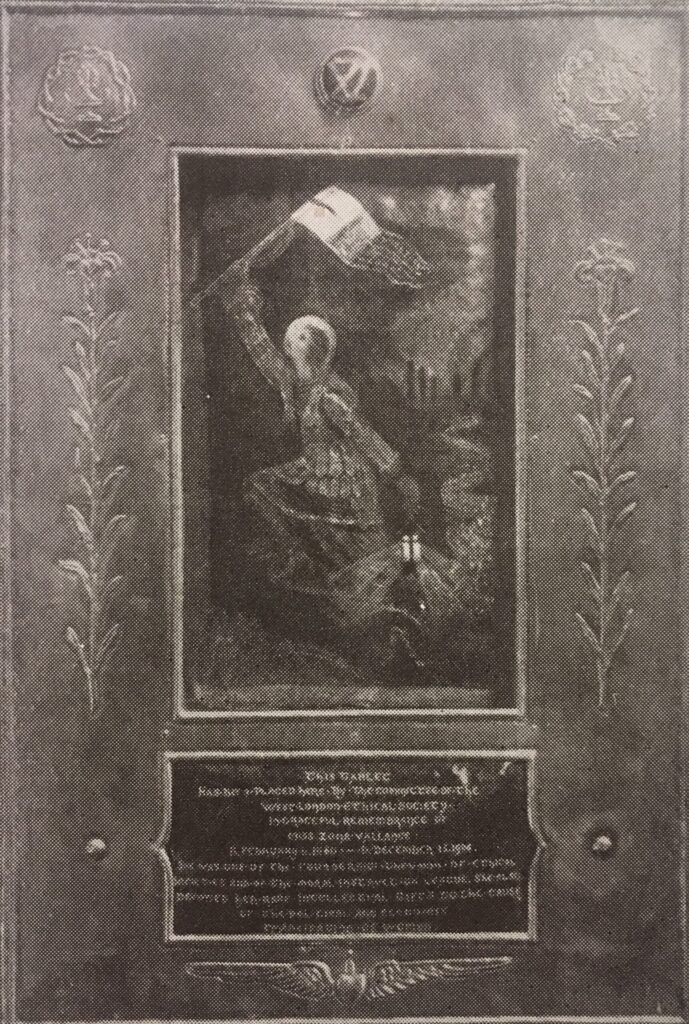
Zona Vallance’s significant contributions to the Ethical Movement were acknowledged in Stanton Coit’s Ethical Church with a plaque designed by Ernestine Mills, a fellow ethical society member and women’s rights activist.
The first memorial tablet to be placed in our Church is the one to the left of our pulpit. It is a testimonial of the high esteem in which Miss Zona Vallance was held by all her colleagues in the Suffrage and Ethical Movements.
The Ethical Message: A Souvenir of the Ethical Church with Thirty-Six Illustrations, 1917
Zona Vallance epitomised the central reformist efforts of, and the vital role of women within, the organised humanist movement from its very beginnings. As a writer, lecturer, and organiser within the ethical societies, she devoted over a decade of her life to campaigning for social change along rational, compassionate lines. The causes of non-theological moral education, equality, and progressive reform, championed by Vallance and fellow members of the Ethical movement, all remain at the heart of the work of Humanists UK today.
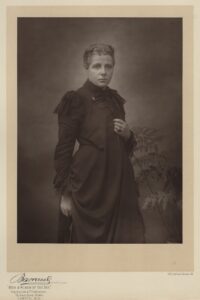
Women, like men, should try to do the impossible. And when they fail, their failure should be a challenge to […]
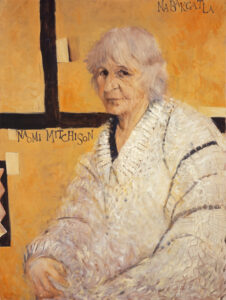
Good will, that curious product of consciousness, of leisure and energy to spare and share. That thing we put out […]
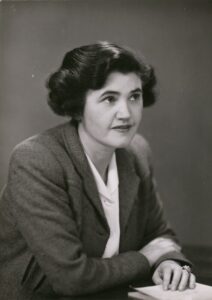
Jennie Lee (also known as Baroness Lee of Asheridge) was a Scottish politician and journalist, known for her upfront orating […]
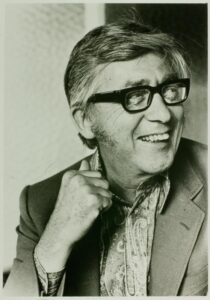
Because no one will believe without a splash from a fontTheir baby will howl in eternal cold, or fire,And no […]